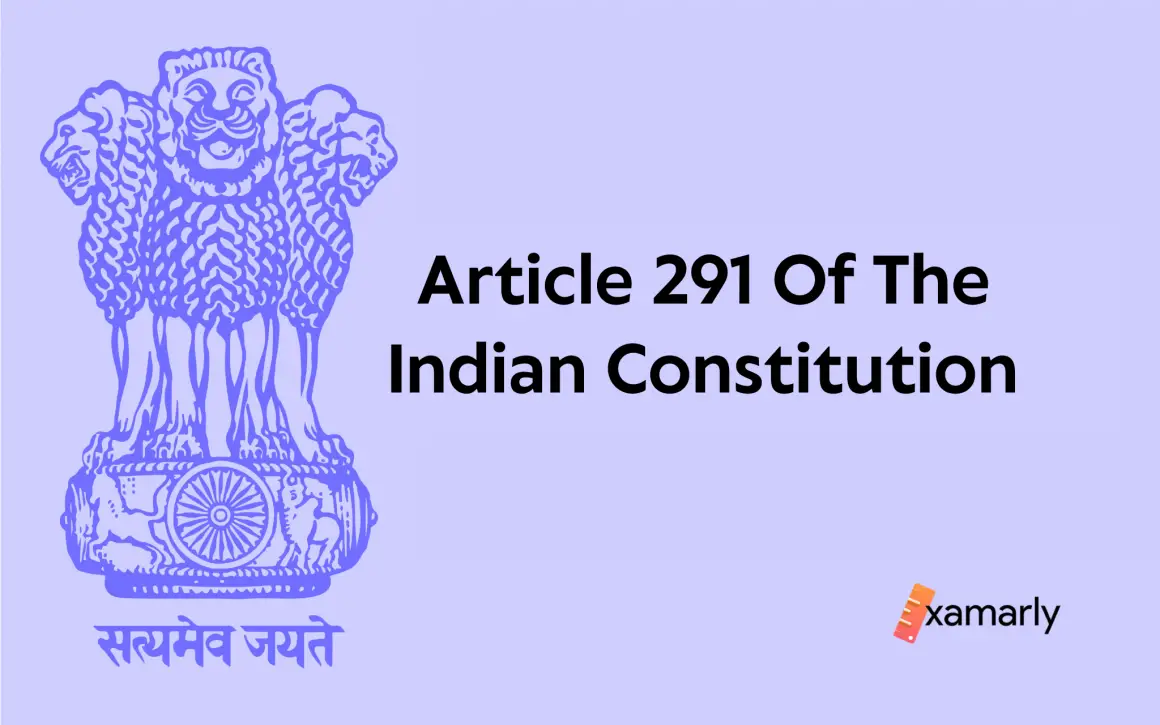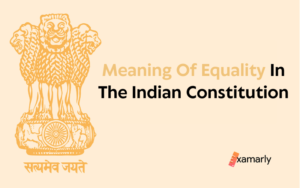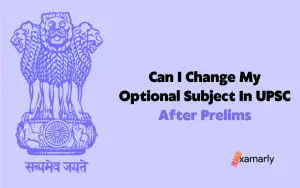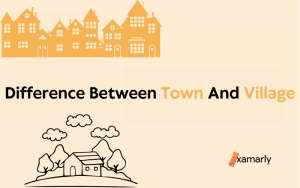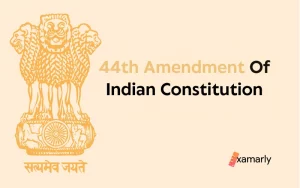Article 291 Of The Indian Constitution stated the provisions related to the privy purse payment system that prevailed in India till 1971.
In this blog, we will have a better insight into the privy purse, why it was carried out, what led to its deletion from the Constitution, and the aftermath.
- Article 291 Of The Indian Constitution – In Detail
- Omission of Article 291 Of The Indian Constitution
- The Aftermath
- Conclusion
- FAQs Related To Article 291 Of The Indian Constitution
- Which Amendment Act repealed Article 291 of the Indian Constitution?
- What is Article 291 of the Indian Constitution?
- Why were privy purses established?
- What was the main reason for abolishing the privy purses?
- How did the end of privy purses affect the former rulers?
- Did the former rulers protest against the abolition of privy purses?
- What was the impact of the abolition of privy purses on the government's revenue deficit?
Article 291 Of The Indian Constitution – In Detail
[Privy purse sums of Rulers.].—Omitted by the Constitution (Twenty-sixth Amendment) Act, 1971
Article 291 of the Indian Constitution deals with the privy purse sums of the rulers of the former princely states of India. The article provides for the payment of privy purses, which are financial allowances paid to the former rulers and their families, to be made by the Government of India.
The privy purse was intended to help the former rulers maintain their status and prestige after the abolition of the princely states and the merger of those states into the Indian Union. The article also provides for the government to retain certain assets of the former princely states, such as palaces and other properties, for the purpose of providing for the privy purses. However, this provision was later amended and privy purses were abolished.
You Might Also Like To Read – Article 290 Of The Indian Constitution
Omission of Article 291 Of The Indian Constitution
The motion to abolish the privy purses and official recognition of the titles of the rulers of the former Indian princely states was first presented to the Indian parliament in 1970. The motion passed in the Lok Sabha, but failed to achieve the necessary two-thirds majority in the Rajya Sabha, with 149 members voting in favor and 75 against.
Despite this setback, the President of India passed an order on September 6, 1970, effectively ending the recognition of the rulers and terminating the privy purses and personal privileges associated with their titles. Some of the affected rulers filed writ petitions with the Supreme Court, which ultimately ruled in their favor.
The issue of abolishing the privy purses was then brought before parliament again in 1971, and successfully passed as the 26th Amendment to the Indian Constitution. The primary argument for the amendment was the principle of equal rights for all citizens and the need to reduce the government’s revenue deficit. The amendment effectively de-recognized the existing titles of the rulers, and stated:
“the Prince, Chief or other person who, at any time before the commencement of the Constitution (Twenty-sixth Amendment) Act, 1971, was recognised by the President as the Ruler of an Indian State or any person who, at any time before such commencement, was recognised by the President as the successor of such Ruler shall, on and from such commencement, cease to be recognised as such Ruler or the successor of such Ruler”.
The Aftermath
The abolition of the privy purse marked the end of the special privileges and status enjoyed by the former rulers of the princely states in India, turning them into ordinary citizens with no official recognition of their former titles or status. This change caused much resistance from the former royalty, who tried to protest against the amendment through various means.
One of the main methods of protest was through contesting seats in the Lok Sabha elections of 1971. For instance, Mansoor Ali Khan Pataudi, the last Nawab of Pataudi, contested as a candidate for the Vishal Haryana Party but received a small percentage of the vote in a two-way contest. However, there were some exceptions such as Vijaya Raje Scindia and her son Madhav Rao Scindia who were successful in the 1971 Lok Sabha polls.
To learn more about the Indian Constitution, read Article 312 Of The Indian Constitution
Conclusion
In conclusion, Article 291 of the Indian Constitution dealt with the privy purse sums of the rulers of the former princely states of India. The article provided for the payment of financial allowances, known as privy purses, to the former rulers and their families by the Government of India.
The privy purse was established to help the former rulers maintain their status and prestige after the abolition of the princely states and their merger into the Indian Union and continued until the provision was amended by the 26th Amendment Act, 1971 and privy purses were abolished. This move was done to establish equal rights for all citizens and to reduce the government’s revenue deficit.
The end of the privy purse finally ended all the entitlements and special status of former rulers, thus turning them into ordinary citizens equal to other Indians, with no official recognition of their former ruling titles, special status, etc. The abolition of the privy purse marked the end of a significant era in the history of India and it’s a reminder of the country’s journey towards a more equal and fair society.
You May Also Want To Read Difference Between Fascism And Communism
FAQs Related To Article 291 Of The Indian Constitution
Which Amendment Act repealed Article 291 of the Indian Constitution?
The 26th Amendment Act, 1971 abolished the privy purse and thus led to the deletion of Article 291 from the Indian Constitution.
What is Article 291 of the Indian Constitution?
Article 291 of the Indian Constitution deals with the privy purse sums of the rulers of the former princely states of India. It provided for the payment of financial allowances, known as privy purses, to the former rulers and their families by the Government of India.
Why were privy purses established?
The privy purse was established to help the former rulers maintain their status and prestige after the abolition of the princely states and their merger into the Indian Union.
What was the main reason for abolishing the privy purses?
The main reason for abolishing the privy purses was to establish equal rights for all citizens and to reduce the government’s revenue deficit.
How did the end of privy purses affect the former rulers?
The end of privy purses marked the end of the special privileges and status enjoyed by the former rulers of the princely states in India, turning them into ordinary citizens with no official recognition of their former titles or status.
Did the former rulers protest against the abolition of privy purses?
Many of the former royalty tried to protest against the abolition of the privy purses, primarily through campaigns to contest seats in the Lok Sabha elections of 1971.
What was the impact of the abolition of privy purses on the government’s revenue deficit?
The abolition of the privy purse helped to reduce the government’s revenue deficit as it stopped the payment of financial allowances to the former rulers and their families.


